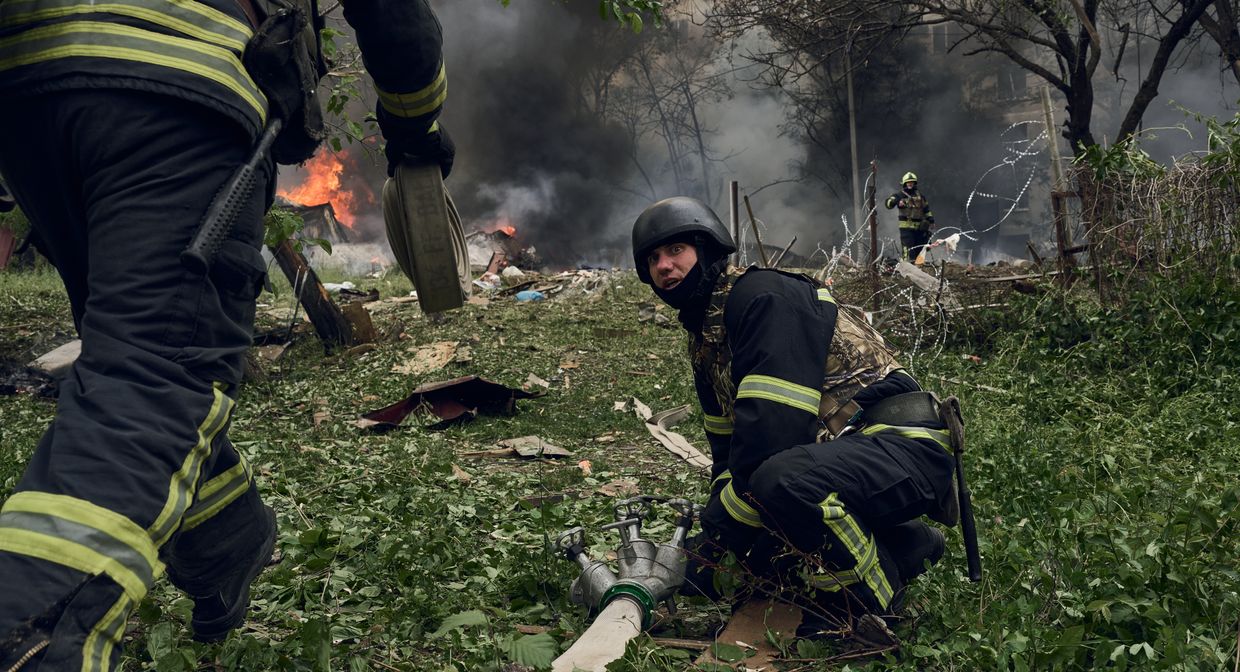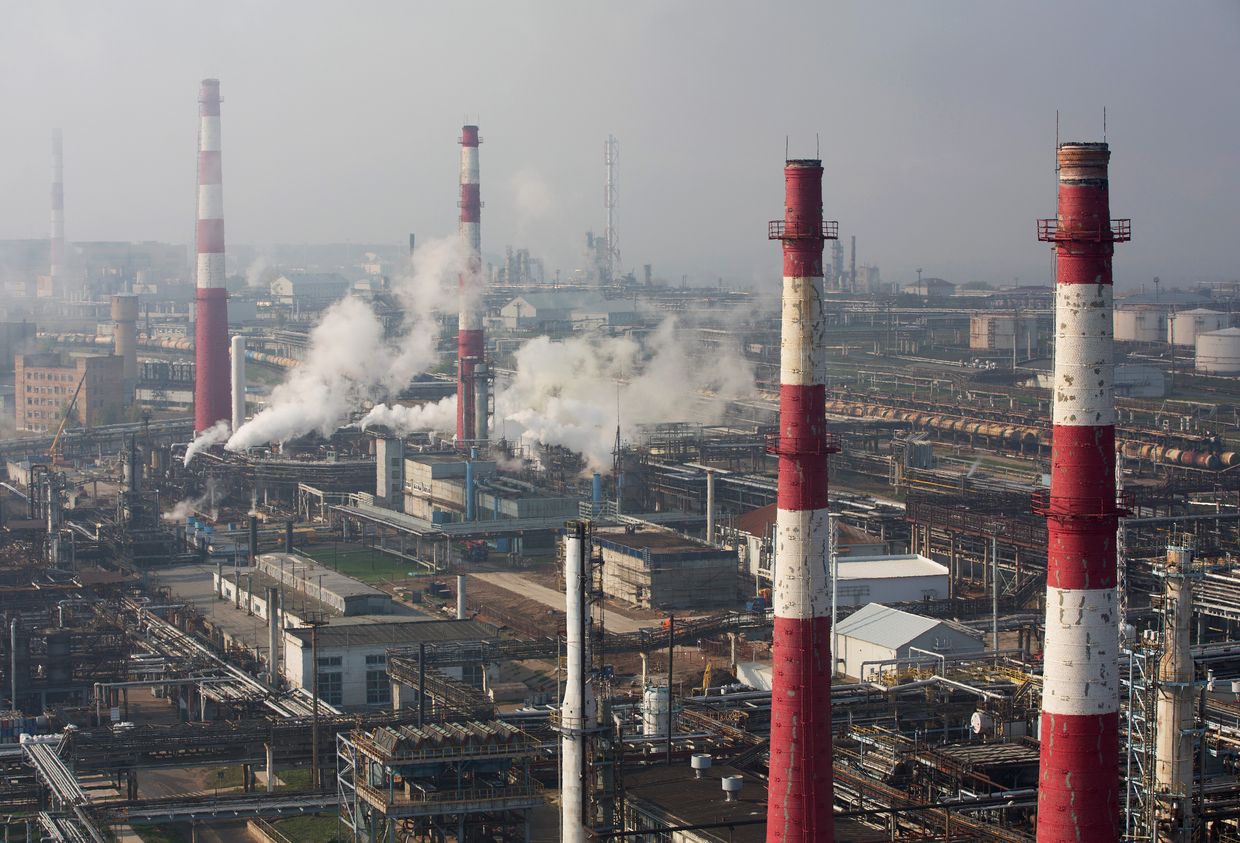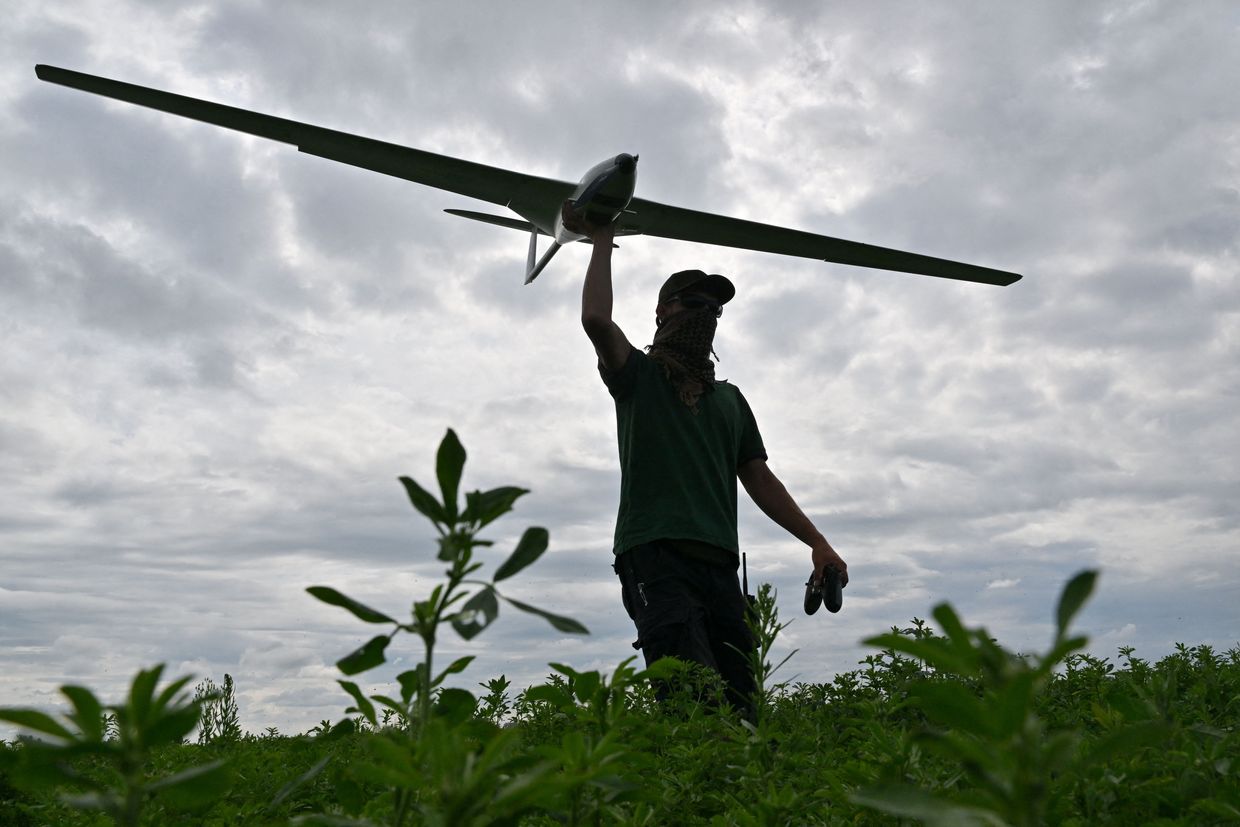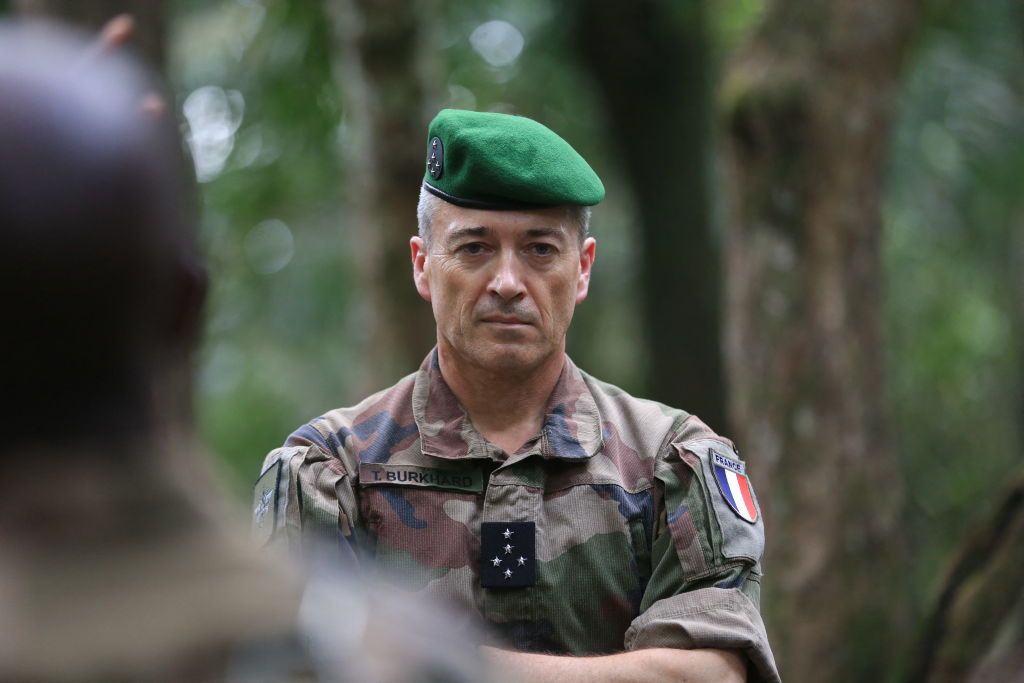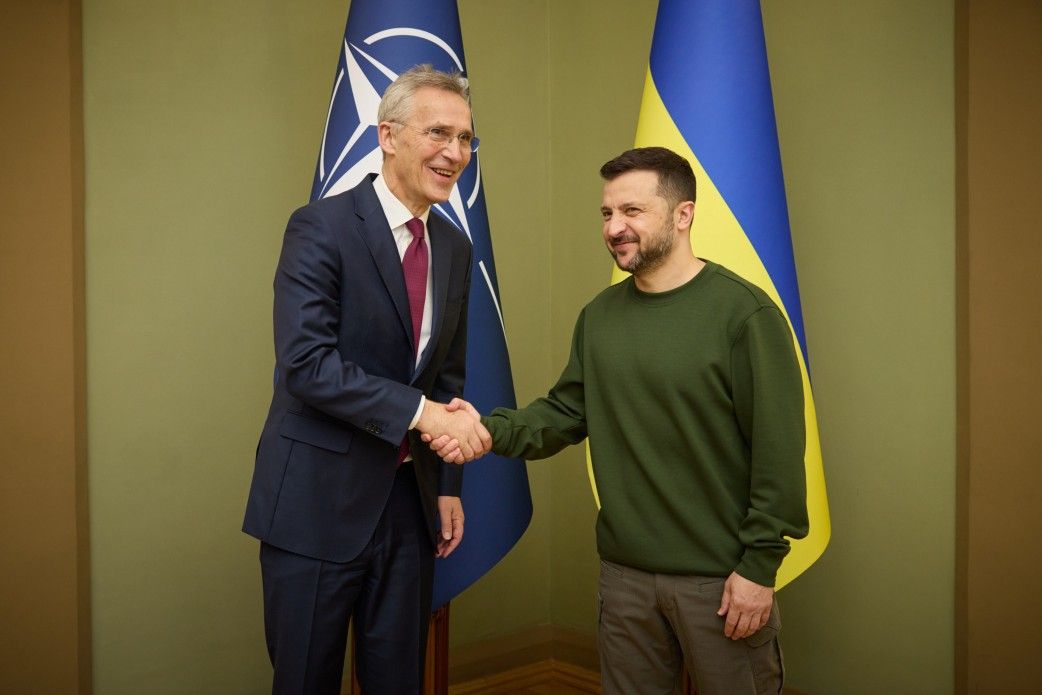Ukraine war latest: Ukrainian forces control 60% of Vovchansk; heavy battles continue in Kharkiv Oblast

Key developments on May 20:
- Deputy governor: Ukraine controls around 60% of Vovchansk
- General Staff: Ukraine fights off Russian attack near Starytsia village in Kharkiv Oblast
- Governor: Ukraine strikes Russian base in occupied Luhansk Oblast
- Russian media: Oil refinery in Russia's Krasnodar Krai damaged after drone attack
- Estonian PM: NATO training soldiers in Ukraine won't escalate war
- Security Council secretary: Ukraine 'clearly understands' war will end with negotiations
Ukrainian forces control about 60% of the town of Vovchansk in Kharkiv Oblast amid continuous Russian assaults, Deputy Governor Roman Semenukha said on national television.
"The enemy keeps trying, especially inside Vovchansk, to push the Ukrainian Armed Forces out of the town," Semehukha said on May 20.
Ukraine's Defense Ministry confirmed on May 15 that Russian units had entered the northern parts of the settlement. The Ukrainian military said at the time it had prevented Russia from establishing a foothold deeper in Vovchansk.
The town is described by Ukrainian officials as almost destroyed, and Russia keeps attacking Vovchansk and other neighboring settlements, inflicting civilian casualties. Russian forces had also captured dozens of civilians in the town and are using them as human shields, the police said.
Over 10,500 civilians in Kharkiv Oblast had been evacuated from their homes amid heavy fighting in the region, according to Governor Oleh Syniehubov.
Russia launched a new offensive on May 10 in northern Kharkiv Oblast. According to President Volodymyr Zelensky, Moscow's forces had managed to advance as far as 10 kilometers (6 miles) into the region but had been halted by the first line of defense.
Russia's offensive in Kharkiv Oblast in mid-May could be the first of several waves, and Russian forces may target the regional capital, Kharkiv, Zelensky said in an interview with AFP on May 17.

General Staff: Ukraine fights off Russian attack near Starytsia village in Kharkiv Oblast
Ukrainian troops are also fighting off a Russian attack near the village of Starytsia in Kharkiv Oblast, Ukraine's General Staff said in its morning report on May 20.
Russian troops have focused their efforts in the directions of Lyptsi and Vovchansk, two settlements a few kilometers south of the border. The village of Starytsia lies about 16 kilometers (10 miles) from Vovchansk.
"The situation is under control. In addition, our units have taken measures to reinforce defensive lines and positions in designated areas," the General Staff said.
Ukrainian soldiers also reportedly repelled a Russian attack in the direction of the village of Synkivka in the Kupiansk district and are conducting assaults in some areas.

The General Staff reported a decrease in Russian attacks in the Siversk sector in northeastern Donetsk Oblast but said the fighting is ongoing. Russian troops are also trying to push out Ukrainian units near the village of Rozdolivka in Donetsk Oblast, according to the report.
Ukraine's military intelligence chief, Kyrylo Budanov, suggested on May 14 that Russian forces may launch a similar offensive in Sumy Oblast when the conditions are more favorable.
Governor: Ukraine strikes Russian base in occupied Luhansk's suburb
A Ukrainian missile attack targeted a Russian military base in occupied Yuvileine, a suburb of Luhansk, on May 20, Governor Artem Lysohor said, citing local residents.
The Russian state-owned media reported on the attack earlier on May 20, alleging that it had targeted residential areas.
According to Lysohor, Luhansk's residents had said that Russian forces set up a military base there, close to civilian buildings. Until 2014, the Academy of Internal Affairs operated in the targeted area, he added.
The Kyiv Independent could not verify these claims. The Ukrainian military has not yet commented on the reports.
On May 13, a Russian ammunition depot exploded in the occupied town of Sorokyne (Krasnodon) in Luhansk Oblast, Lysohor reported at the time.
Russia had occupied Luhansk and a significant part of Luhansk Oblast since the start of its aggression in 2014.
Oil refinery in Russia's Krasnodar Krai damaged after drone attack
At least one unit of an oil refinery in the Russian town of Slavyansk-on-Kuban was damaged in a Ukrainian drone attack over the weekend, the Russian state-owned news agency RIA Novosti claimed on May 20, citing an unnamed representative in the operating company.
The plant, located in Russia's Krasnodar Krai, came under a Ukrainian drone attack overnight on May 18-19, Ukrainska Pravda reported, citing an undisclosed source in the Security Service of Ukraine (SBU).
The full extent of the damage is being determined, RIA Novosti's source said.
The oil refinery suspended operations following the attack, the company said in a statement.
In recent months, Ukrainian forces have launched a series of drone strikes aimed at damaging Russia's oil industry, which is crucial to sustain Moscow's war efforts.
The same day as the Slavyansk refinery came under attack, Ukrainian drones also targeted Russia's Kushchyovskaya military airbase, hosting "dozens" of military aircraft, including Su-34s, Su-25s, Su-27s, and MiG-29s.
Estonian PM: NATO training soldiers in Ukraine won't escalate war
The NATO allies' fears that sending troops to Ukraine to train the country's soldiers could draw them into war with Russia "are not well-founded," Estonian Prime Minister Kaja Kallas said in an interview with the Financial Times published on May 20.
Some NATO member states are discussing the possibility of sending military instructors or contractors to Ukraine to train Ukrainian troops and assist with equipment repairs, The New York Times reported last week.
Kyiv has asked the U.S. and other NATO countries to help train 150,000 soldiers closer to the front lines, the outlet wrote.
"There are countries who are training soldiers on the ground already," Kallas told FT, adding that they did so at their own risk.
The prime minister did not name any specific countries or provide any further details on their purported operations.
If Russia attacked the training personnel, it would not automatically trigger NATO's Article 5 on mutual defense, according to the prime minister.
Kallas said that helping train Ukrainian troops within Ukrainian borders, rather than elsewhere in Europe, will not escalate the war with Russia.
"I can't possibly imagine that if somebody is hurt there, then those who have sent their people will say 'it's Article 5. Let's ... bomb Russia.' It is not how it works. It's not automatic," Kallas said.
The debate on the potential presence of NATO troops in Ukraine was sparked by comments made by French President Emmanuel Macron in February, in which he considered the possibility of sending troops to Ukraine if requested.
The U.S. and multiple European allies, as well as NATO Secretary-General Jens Stoltenberg, have distanced themselves from Macron's statements. However, several countries have not ruled out sending troops for non-combat missions, such as training the Ukrainian military.
Estonian Defense Minister Hanno Pevkur said on May 14 that the idea of sending Western troops to Ukraine has not advanced either in Estonia or at the EU level since "there is no clear understanding among the allies what it would bring."
Security council secretary: Ukraine 'clearly understands' war will end with negotiations
Ukraine "clearly understands" that Russia's full-scale war will end with negotiations, National Security and Defense Council Secretary Oleksandr Lytvynenko said on May 20, addressing the participants of the Baltic Sea Region Forum.
This is the reason why Ukraine's peace formula was prepared and is being promoted, according to Lytvynenko.
The founding principles of Ukraine's upcoming global peace summit in Switzerland were developed in a series of international meetings. The summit will be centered around the 10-point formula that includes Russia's full withdrawal from Ukraine, prosecution of war criminals, and other points.
"This is a real diplomatic track that has every chance of contributing to a just peace," Lytvynenko said.
"But we do not need a two-year truce; we need a sustainable peace for decades, which would enable Ukraine's development. And this is a matter of security guarantees."
Over 30 countries have joined the Group of Seven (G7) Joint Declaration of Support for Ukraine so far. The U.K., Germany, France, Denmark, Italy, Canada, the Netherlands, Finland, and Latvia have already signed bilateral agreements with Kyiv.
Kyiv is reportedly preparing bilateral security agreements with seven more countries, including the U.S.
Lytvynenko also urged the partners to send modern weapons to Ukraine and called for a NATO membership invitation for Kyiv at the July summit in Washington.



